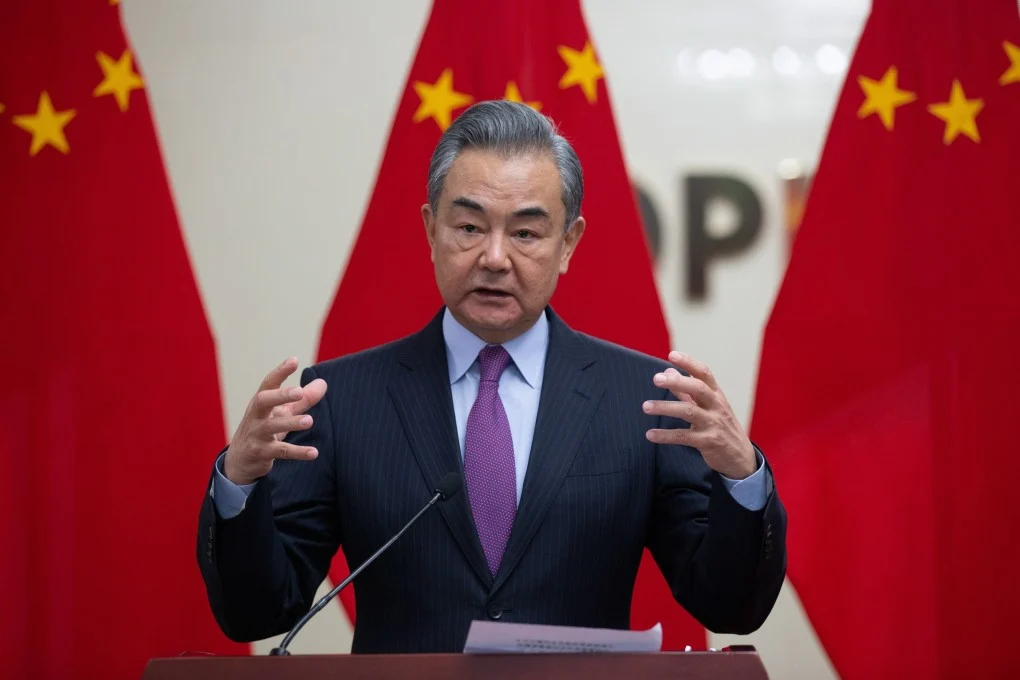
China’s senior ambassador departs for Africa as Western interest wanes
Following a 35-year tradition, China’s top diplomat started his yearly New Year trip of Africa on Sunday in an effort to subtly increase Beijing’s already significant influence over the resource-rich continent as America’s and Europe’s presence dwindle.
Foreign Minister Wang Yi’s visits to Namibia, the Republic of Congo, Chad, and Nigeria demonstrate China’s consistent engagement with Africa, analysts say, as global capitals and investors prepare for U.S. President-elect Donald Trump’s return to the White House and German and French ministers are kept busy by domestic politics and wars in the Middle East and Ukraine.
As the second-largest economy in the world increases its financial assistance for the indebted continent, Wang’s visit through Saturday coincides with efforts to close more important resource deals and locate markets for its products.
“There is rarely any external logic involved in the decision of which countries to visit each year,” said Eric Orlander, co-founder of the China-Global South Project. “(But) it resonates in Africa as a reminder of China’s consistent commitment to the continent, in contrast to the approaches of the U.S., United Kingdom and European Union.”
“China firmly believes that Africa has never been a forgotten continent, but rather a source of vitality and a land full of development potential,” Guo Jiakun, a spokesman for the Chinese foreign ministry, stated at a routine news conference on Monday.
Africa provides a much-needed channel for China’s state-owned infrastructure companies that are having trouble getting projects as indebted local governments put off spending, as well as a market for its solar panels and electric cars, areas where the U.S. and EU claim it has overcapacity, as the Chinese economy slows.
An advertisement is currently playing in the video player. Using a mouse or computer, you can skip the advertisement in five seconds.
Africa has more than 50 votes at the UN, which might further Beijing’s attempts to change international standards and multilateral institutions to better suit its interests, especially on human rights problems.
China places Africa at the top of its diplomatic agenda, while current U.S. President Joe Biden’s December trip to Angola was his only travel to sub-Saharan Africa during his term.
Hannah Ryder, founder of Development Reimagined, an African-owned consultancy, said, “China has become central to Africa’s policy, as an actor and an inspiration.” She was referring to the way candidates running for chair of the African Union Commission have emphasized Beijing’s capacity to boost Africa’s manufacturing capabilities and China’s mass education record in the run-up to the February election. The commission serves as the 55-nation African Union’s secretariat.
QUESTIONS OF SECURITY
“China’s commitment to implementing the outcomes of last year’s summit, where China pledged $51 billion in fresh financial assistance, is also demonstrated by Wang’s decision to visit the Republic of Congo, which this year assumes the role of co-chair of the Forum on China-Africa Cooperation (FOCAC), which sets the agenda for China-Africa relations,” Ryder said.
According to observers, Wang’s trip to Chad is partially explained by Beijing’s growing influence on urgent regional security matters.
After its government abruptly terminated a defense cooperation agreement that had made it a crucial Western ally in the battle against Islamic terrorists in the region, France started to withdraw its troops from the Central African nation last month.
“China has been a reliable and stable partner for the new military juntas in the Sahel and West Africa,” Orland stated.
“For the French and U.S., who see a dilution of Western power in the region, China’s presence is seen as ‘controversial,’ but it’s a very different view from African perspectives.”
All Categories
Recent Posts
Tags
+13162306000
zoneyetu@yahoo.com


